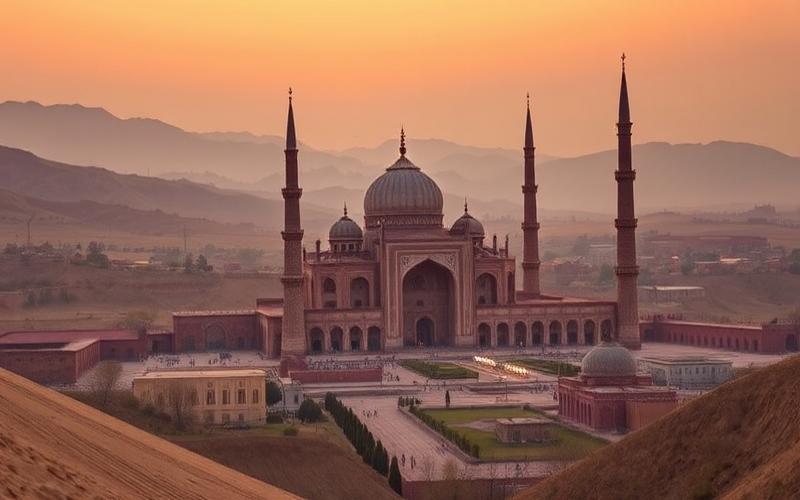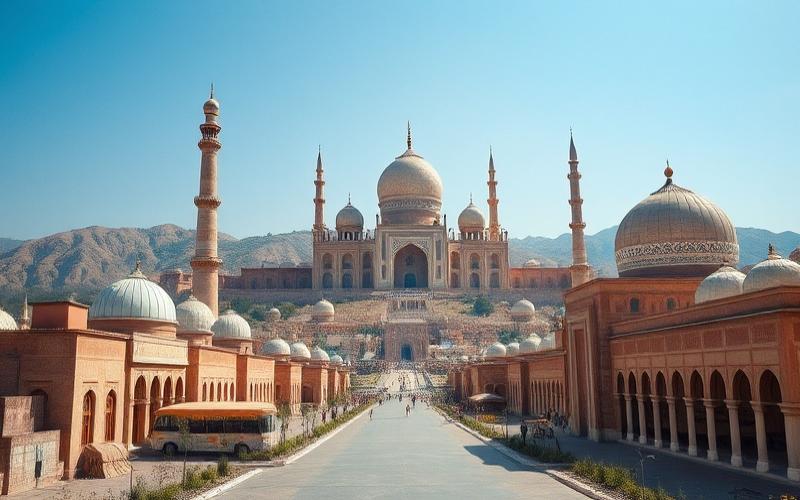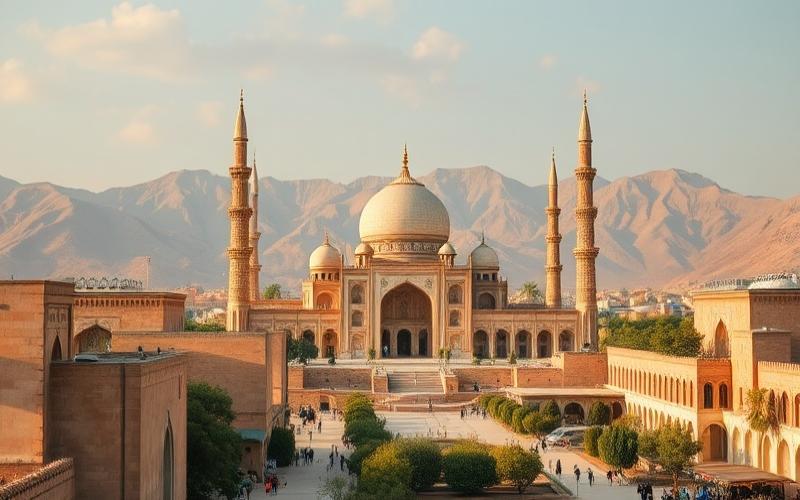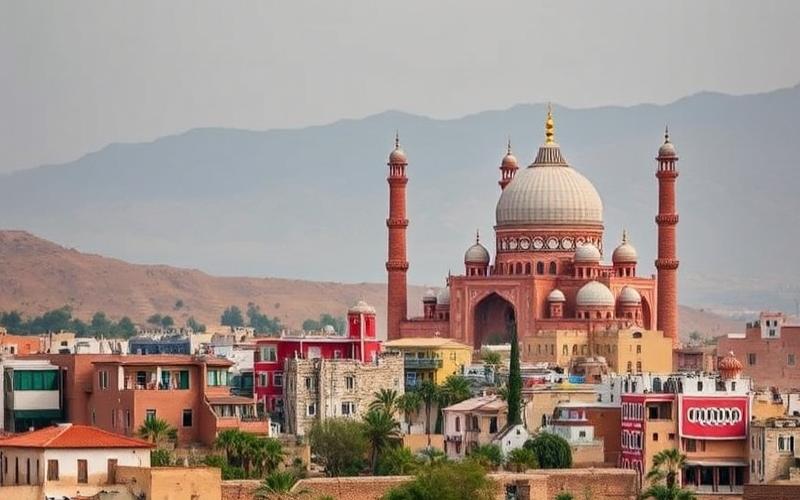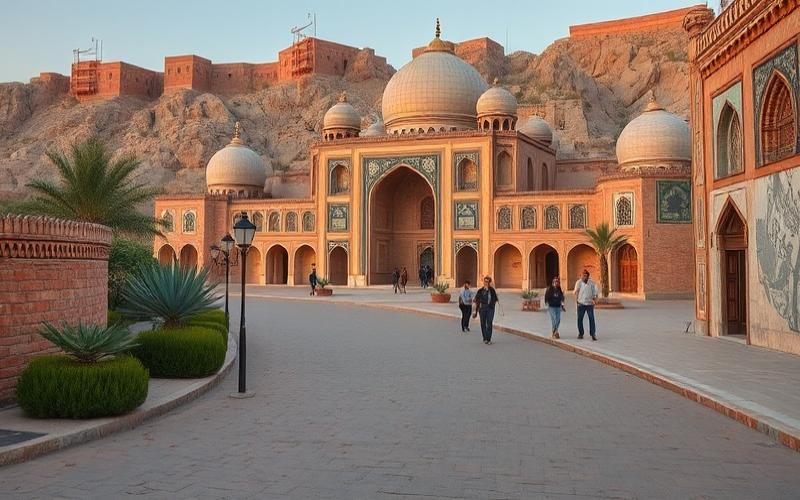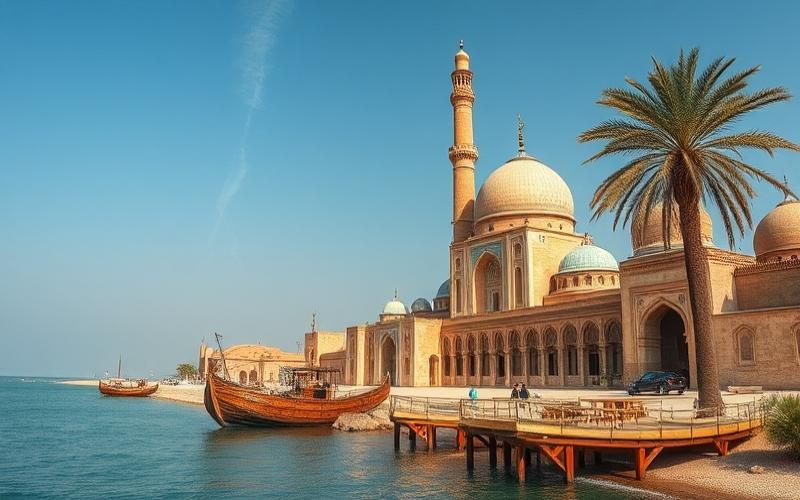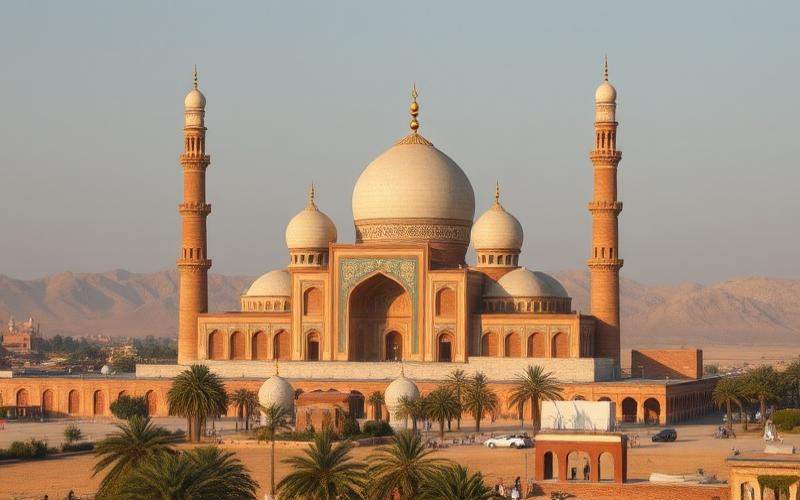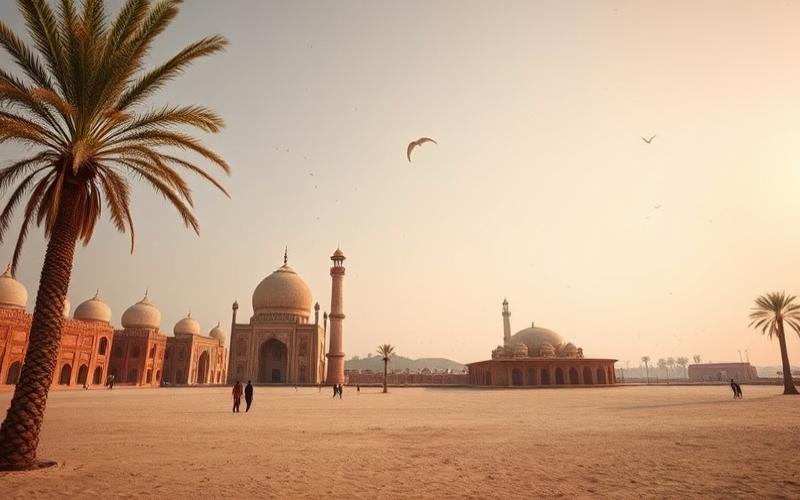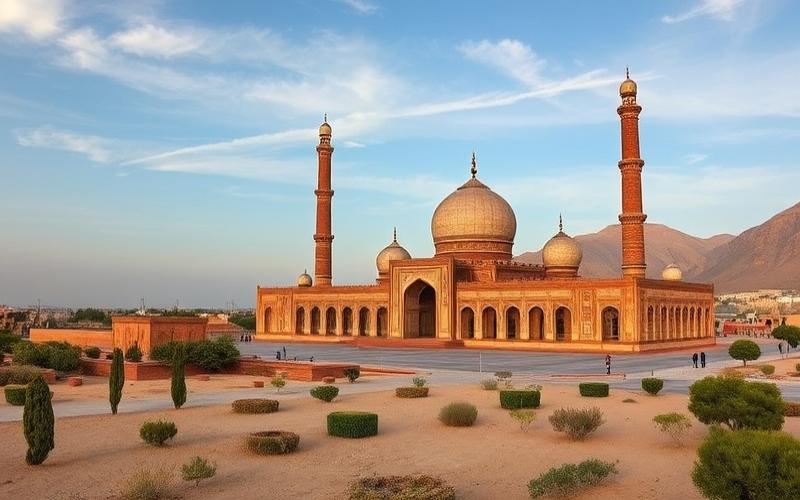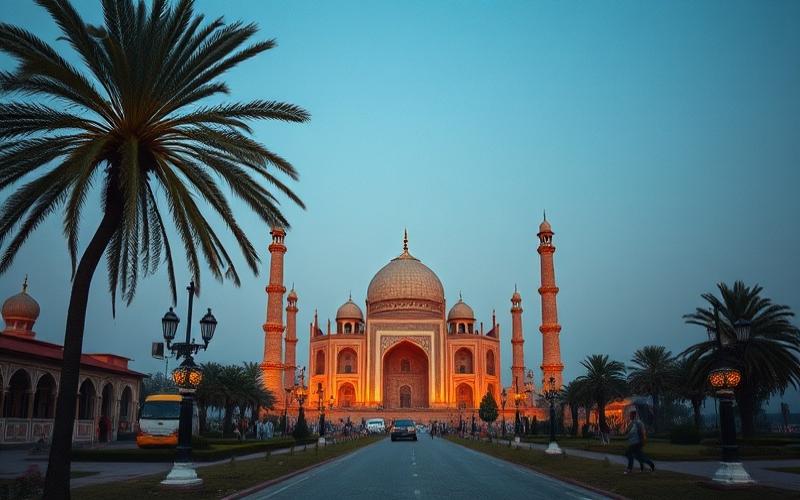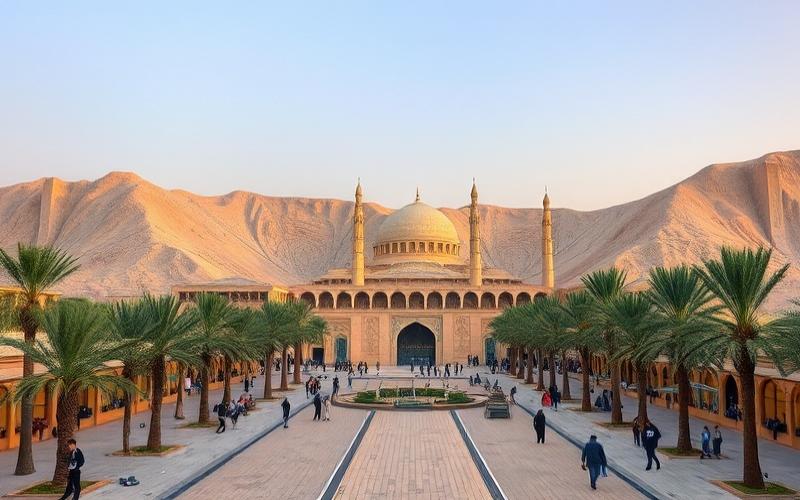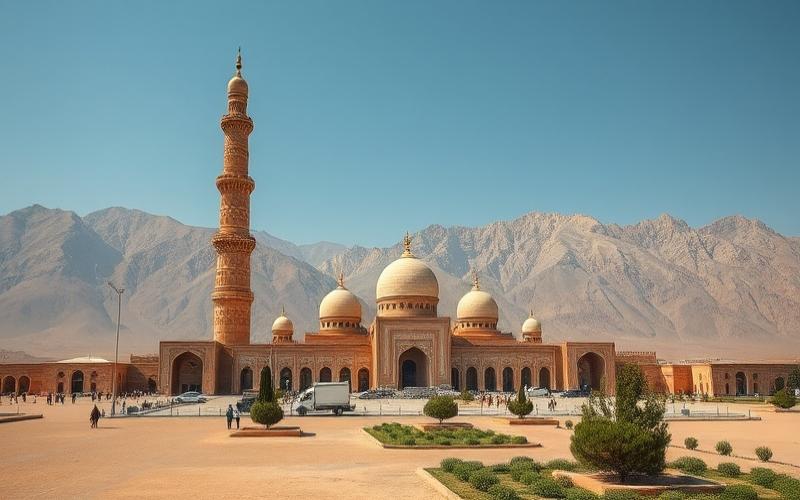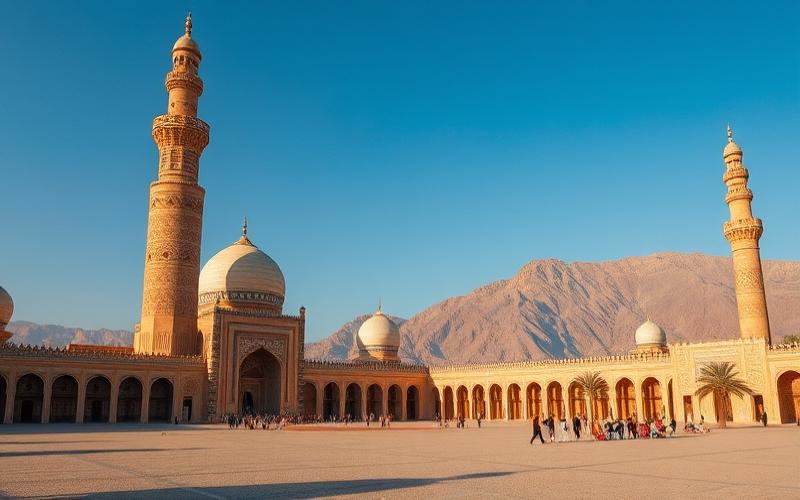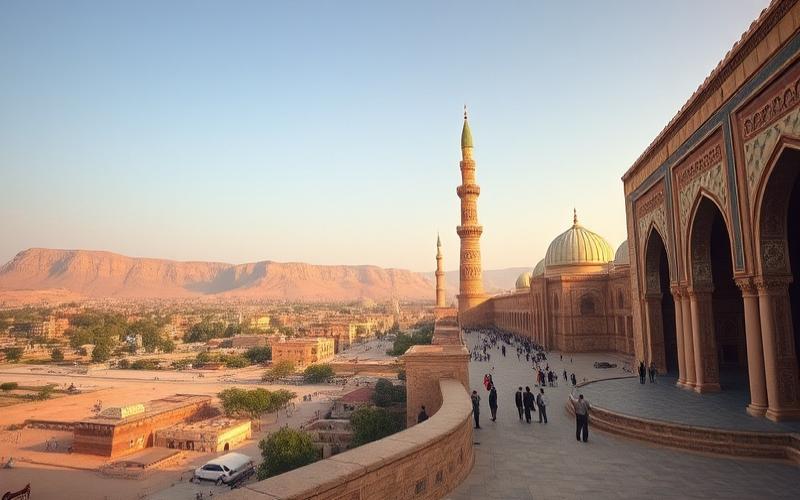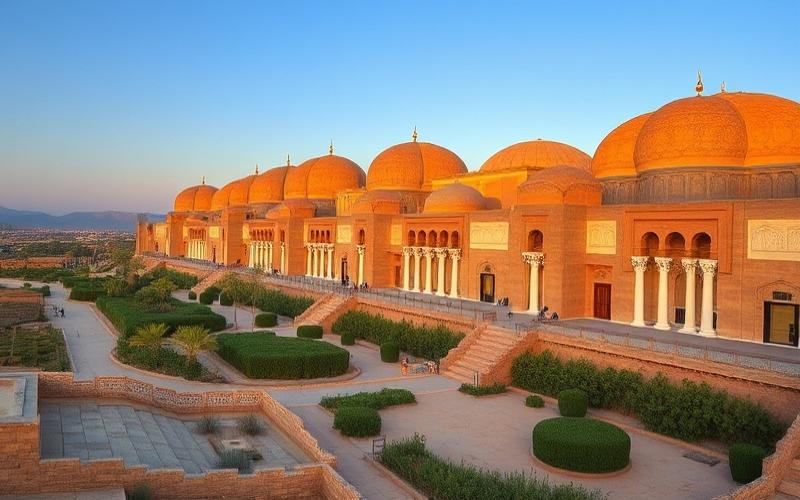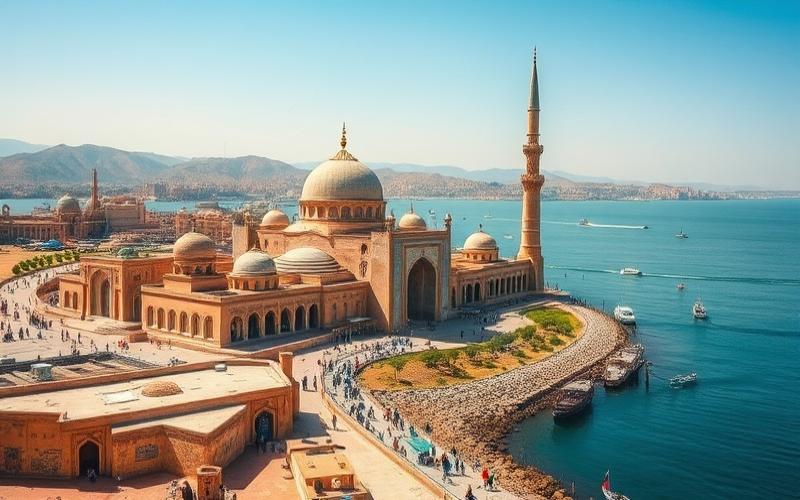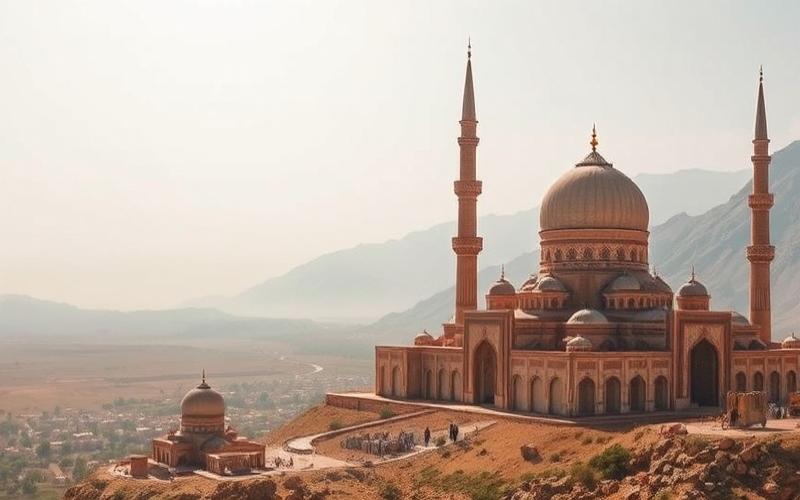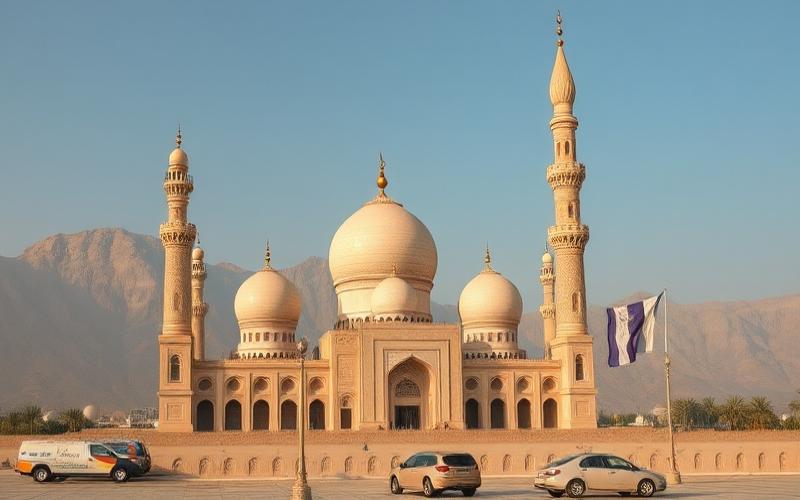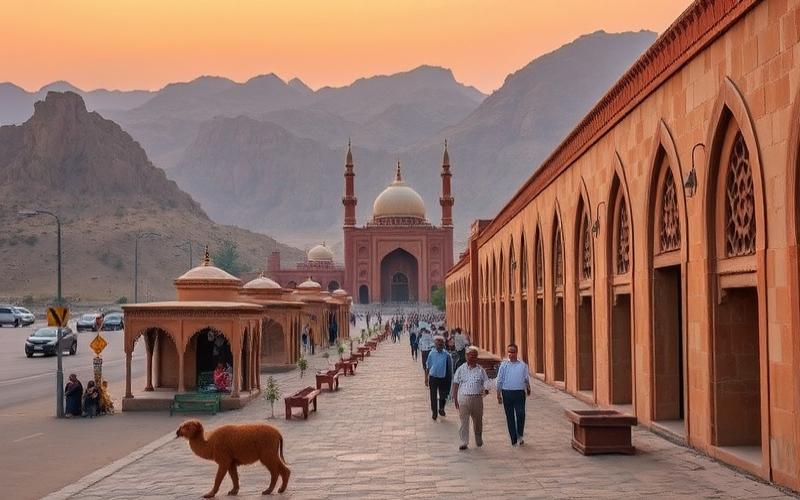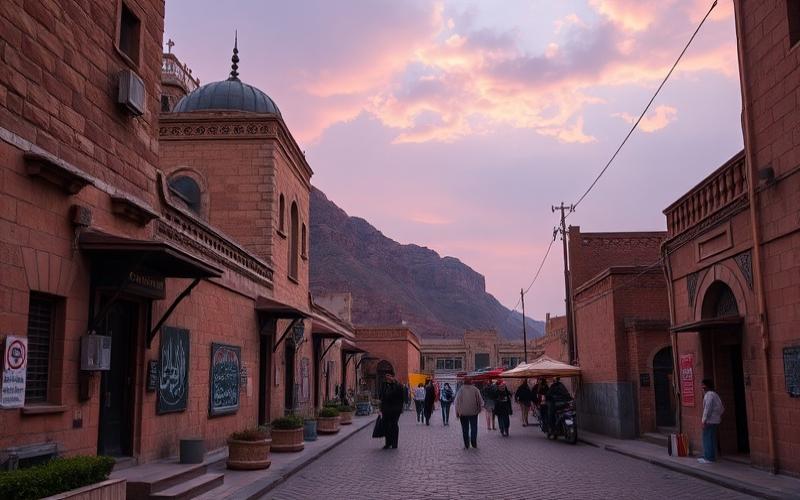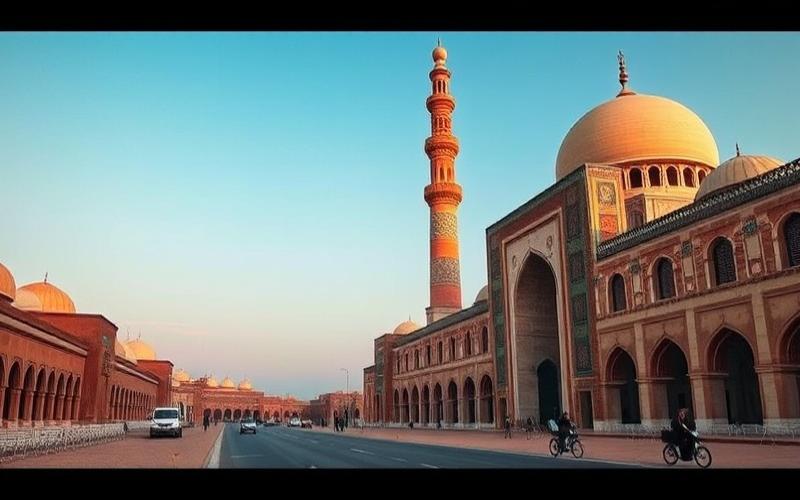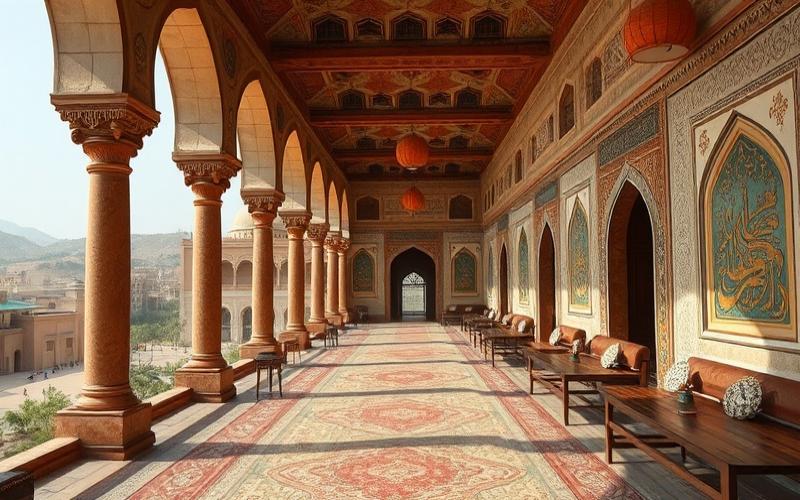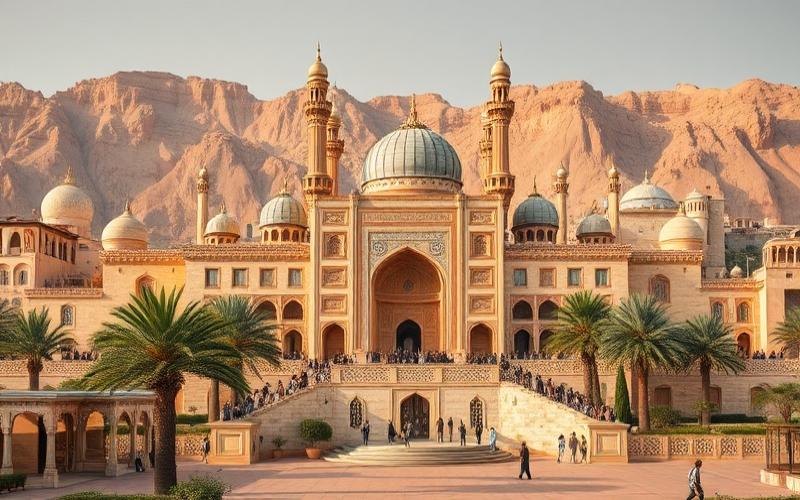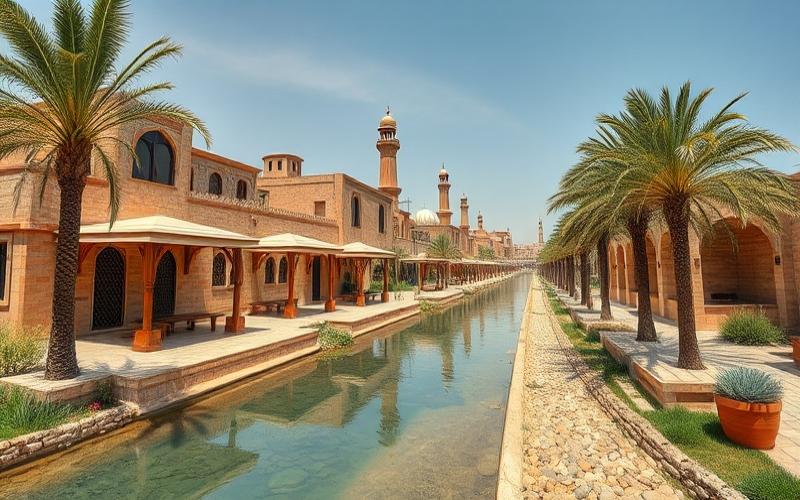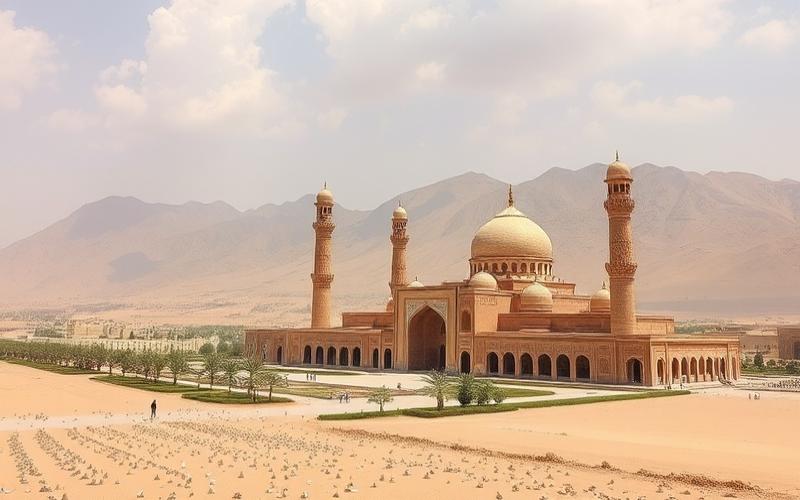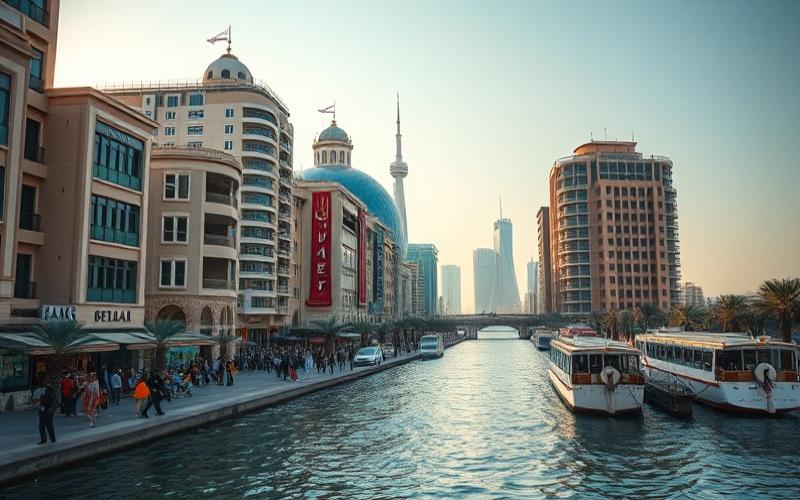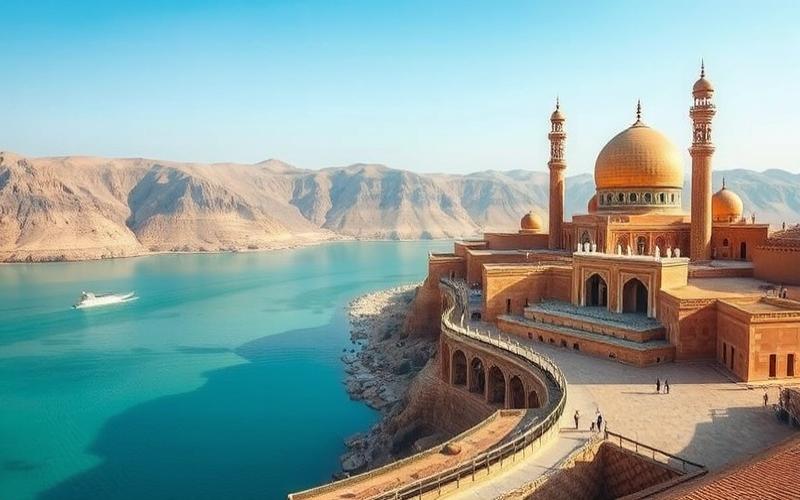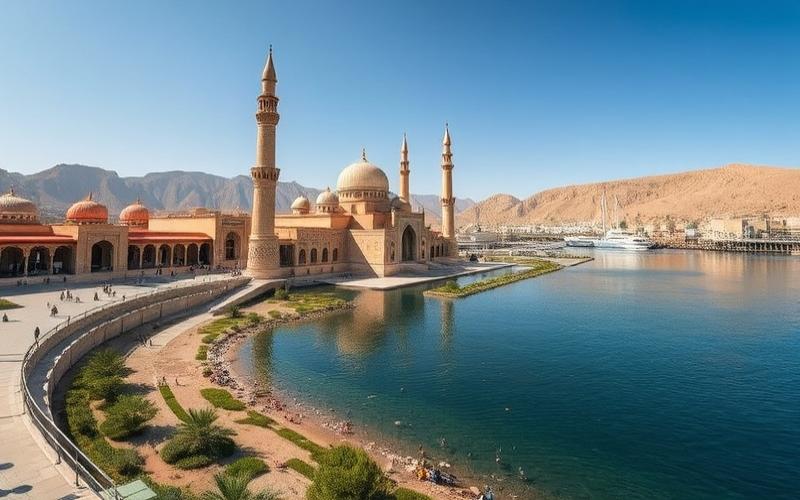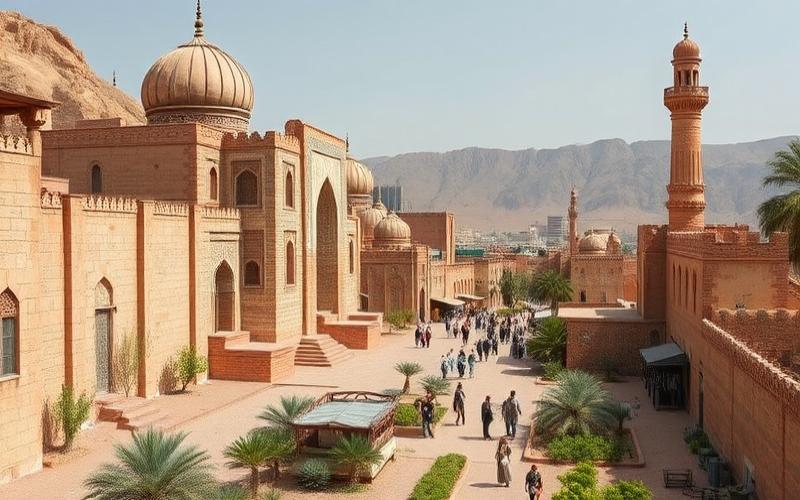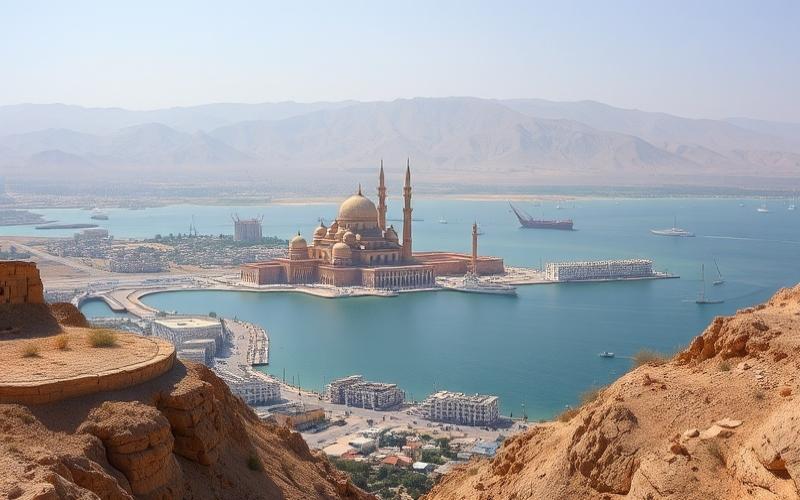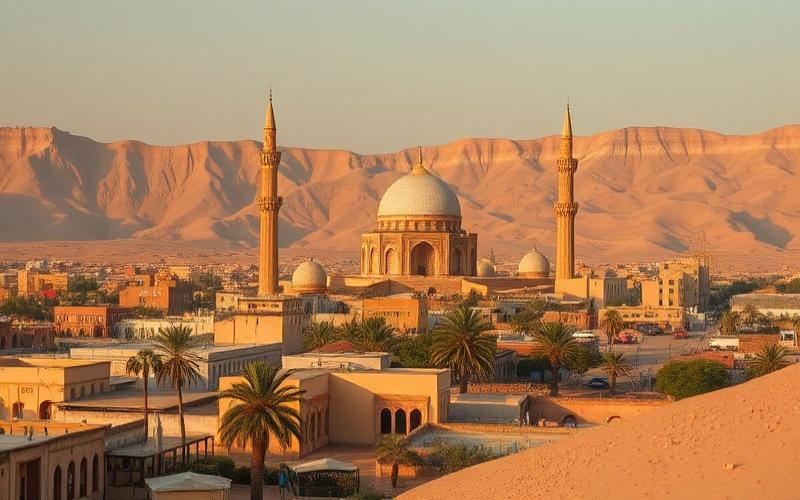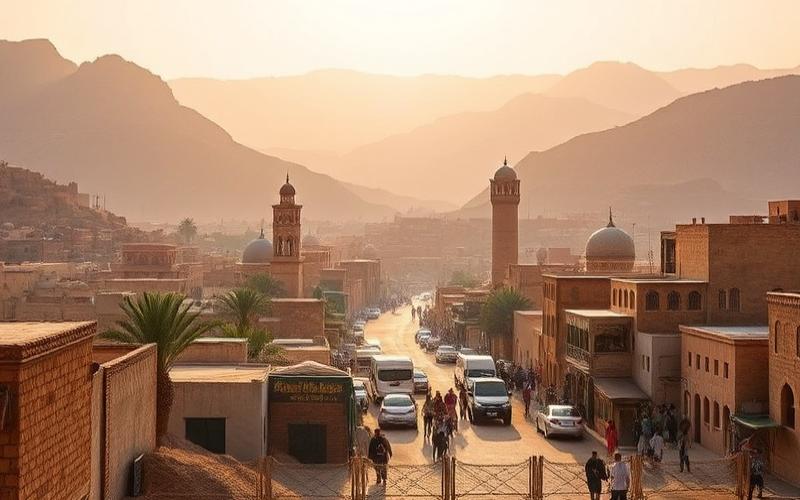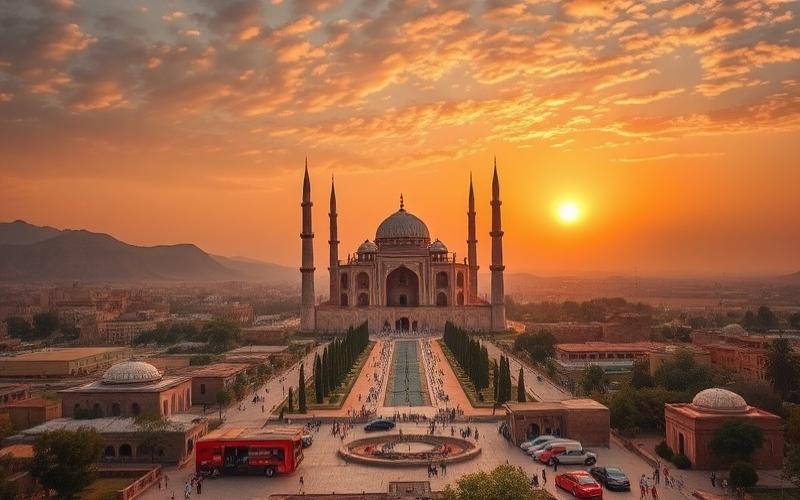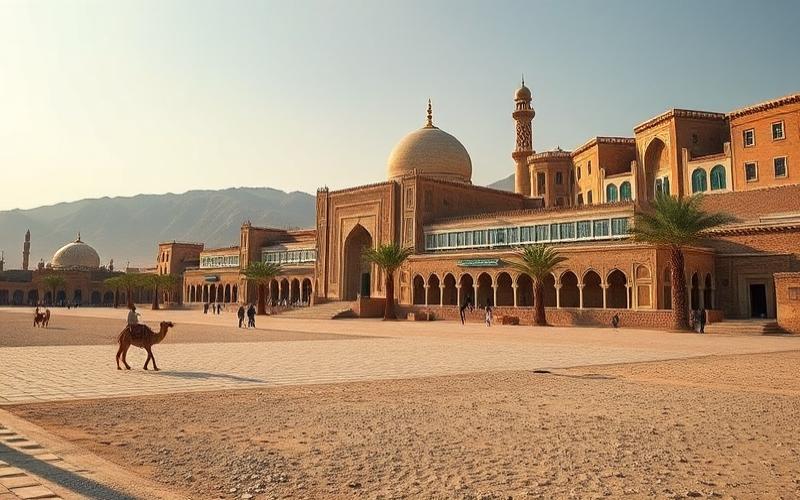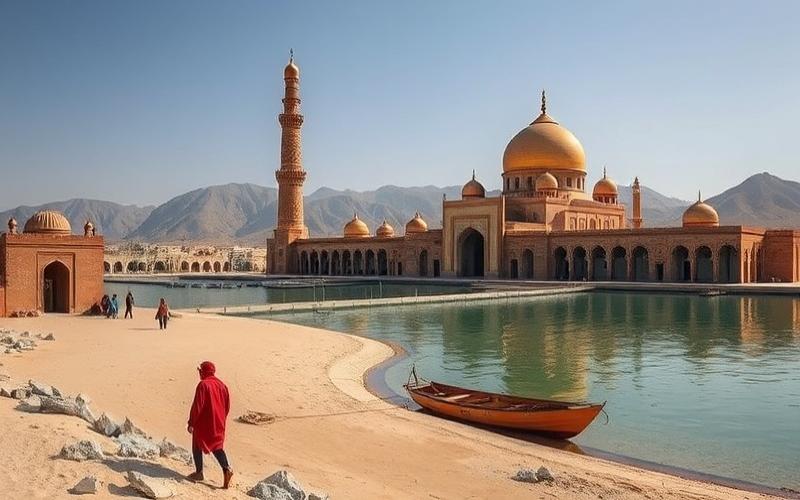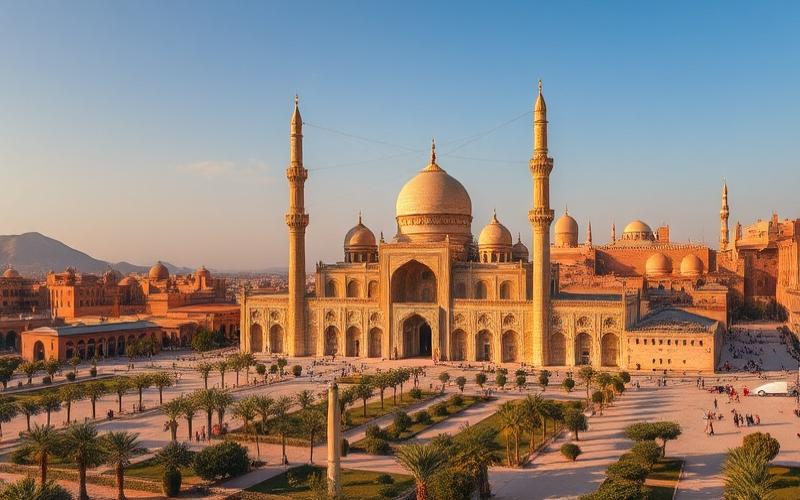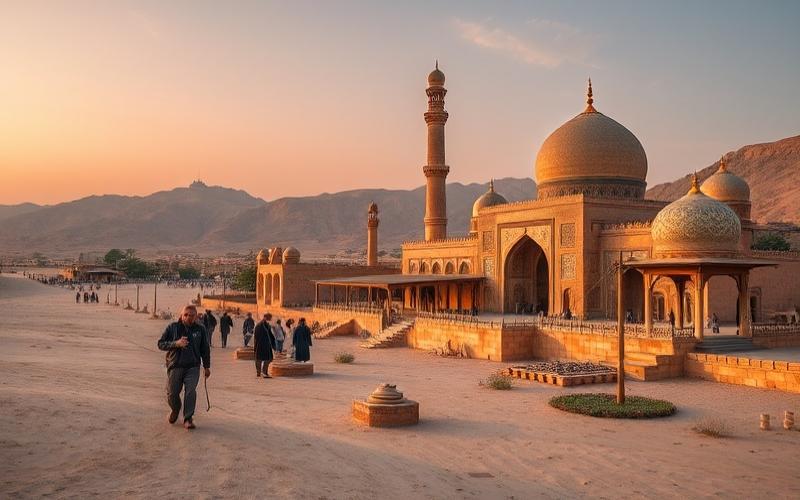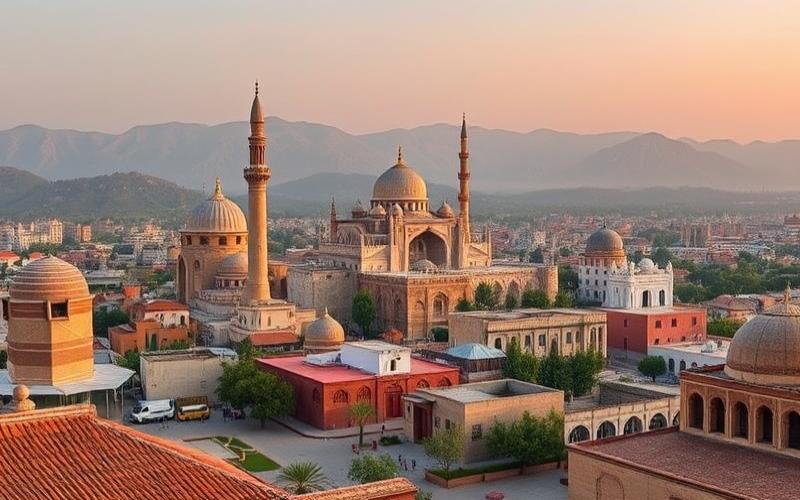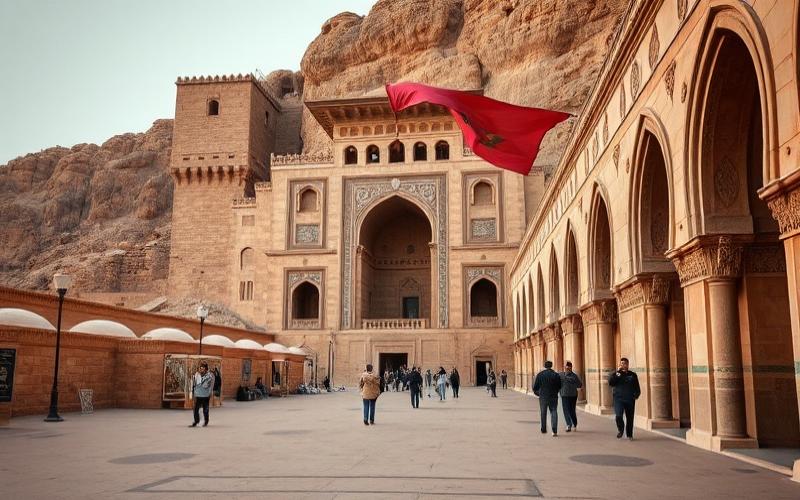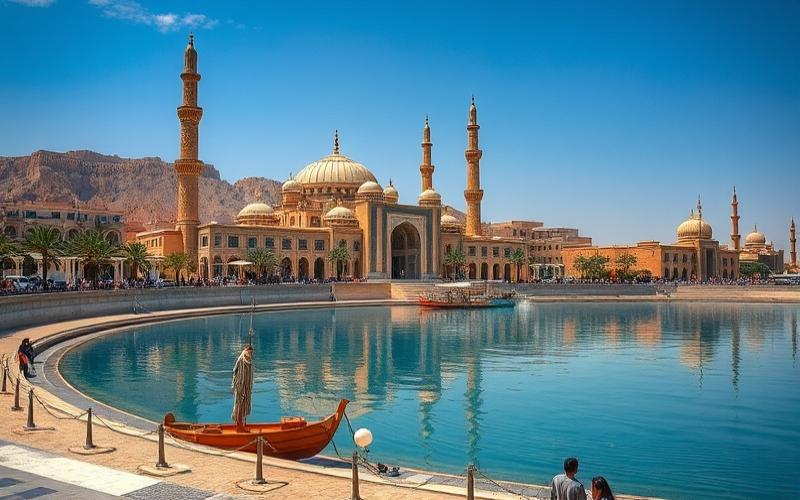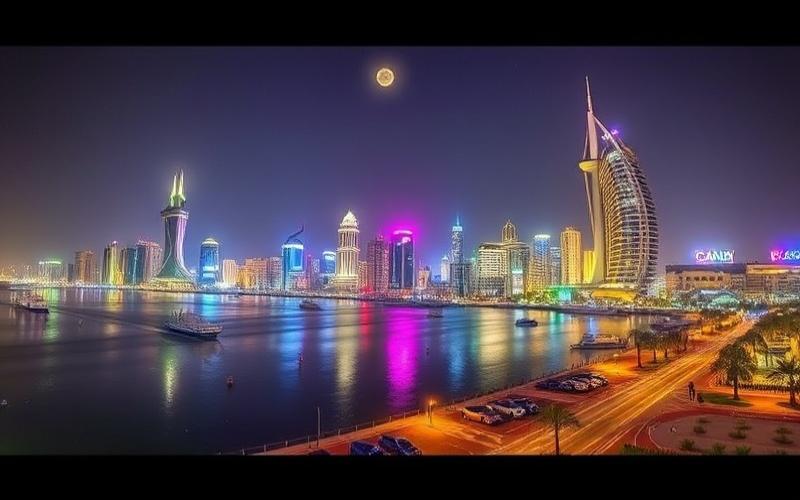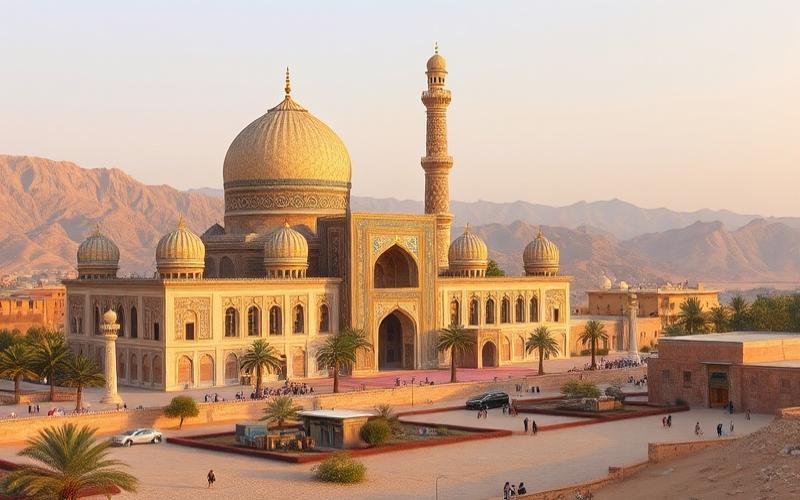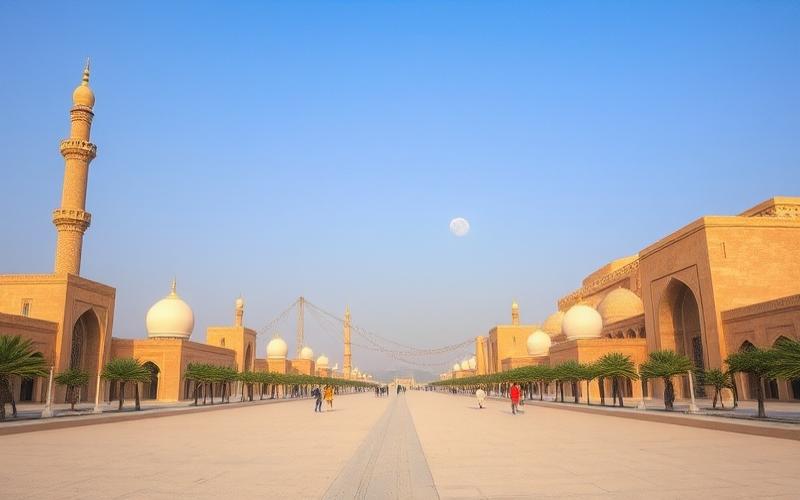
 Published on and written by Cyril Jarnias
Published on and written by Cyril Jarnias
Bahrain: A Strong Commitment to Green Real Estate
Bahrain, though small in size, is taking giant strides toward a sustainable future with its commitment to green real estate. While the region hosts many modern developments, Bahrain stands out through its proactive adoption of stringent environmental standards, promising not only reduced carbon footprint but also enhanced quality of life for its residents.
2025 Goals: Subsidies and Green Standards
By 2025, the government plays a crucial role by introducing attractive subsidies to encourage new constructions and renovations to align with these green standards. This transition toward sustainable architecture is drawing international investor attention and marking a notable transformation in the kingdom’s urban landscape.
Good to Know:
Environmental standards in Bahrain often include requirements for energy efficiency, use of sustainable materials, and water resource management.
Essential Green Building Practices in Bahrain
Green building in Bahrain by 2025 relies on integrating innovative techniques and materials that meet national sustainability and energy efficiency goals, while supporting the growth of the green real estate sector.
Key Essential Techniques and Materials:
- Integrated photovoltaic solar panels in residential, commercial, and industrial buildings, favored by the country’s abundant sunshine.
- Green roofs that improve thermal insulation, reduce energy needs for air conditioning, and promote urban biodiversity.
- Self-healing concrete that extends the lifespan of structures while limiting maintenance costs.
- Engineered timber used as a sustainable alternative to traditional concrete due to its high strength-to-weight ratio.
- Increased implementation of the circular economy principle, including reusing or recycling materials from construction sites to limit waste.
Specific Examples Illustrating These Practices:
| Project/Building | Main Ecological Feature | Environmental/Economic Impact |
|---|---|---|
| Bapco Solar Project | Solar power plant integrated into an industrial site | Significant reduction in emissions; local clean energy production |
| Bahrain International Airport | Rooftop solar installation | Reduction in airport carbon footprint |
| Riffa Views | Residential solar systems | Partial energy autonomy for the neighborhood |
Benefits Provided:
- Direct reduction in CO₂ emissions through lower fossil fuel consumption and extensive use of local renewable energy.
- Decreased operational costs via improved energy efficiency and significant reduction in electricity bills for occupants or operators.
- Enhanced property value: Eco-certified buildings generally benefit from greater market appeal.
Local Standards Governing Green Building:
Gradual adoption of a regulatory framework aligned with the National Renewable Energy Action Plan (NREAP), aiming for a minimum 30% reduction in carbon emissions by 2035 (baseline: 2015 levels) with a net-zero emissions target set for 2060.
Available Subsidies:
Public support granted as financial or tax incentives for projects extensively using renewable energy or complying with certain local environmental standards. This notably includes streamlined administrative processes for obtaining permits related to solar installations and various tax reliefs for developers committed to sustainable construction.
Visual Summary — Major Innovations:
| Innovation | Main Function |
|---|---|
| Solar panels | Decentralized green energy production |
| Green roofs | Thermal insulation & biodiversity |
| Self-healing concrete | Enhanced structural durability |
| Engineered timber | Low-carbon construction |
Major urban projects such as Bahrain Bay or Fasht al-Jarm embody this new dynamic where every new city now integrates these foundational ecological requirements from the design phase.
Good to Know:
In 2025, green building in Bahrain is distinguished by its adoption of innovative techniques such as solar energy integration and rainwater harvesting, along with the use of eco-friendly materials like low-carbon concrete and certified wood. Flagship projects, such as the Amwaj Eco-Village residential complex, demonstrate the effectiveness of these practices through a 30% reduction in energy consumption. Stringent local standards, based on the Bahrain Green Building Code, ensure environmental performance and construction sustainability. Financial incentives, including subsidies covering up to 50% of green building costs, encourage developers to adopt these ecological strategies, thereby providing economic benefits by reducing energy bills and increasing property values.
Understanding Renewable Energy Subsidies in Bahrain
The current framework for renewable energy subsidies in Bahrain aims to accelerate the transition toward a more sustainable economy, particularly in the real estate sector. Recent measures and government strategies fully align with Bahrain’s Vision 2030, which aims to diversify the energy mix and reduce dependence on fossil fuels.
Types of Subsidies and Support Mechanisms Available:
- Subsidized financing: Authorities, via the Electricity and Water Authority and partner banks, offer preferential financing programs to enable individuals and investors to launch renewable energy projects, particularly solar.
- Investment aids: Tamkeen provides financing plans for purchasing and installing solar panels, along with partial coverage of energy audit costs for businesses.
- Subsidized pilot projects: Solar installations on public buildings (schools, universities, hospitals), as well as on major infrastructures (Bahrain International Circuit, public parks, etc.), benefit from direct or indirect subsidies.
- Energy efficiency subsidies: Support for installing centralized cooling systems and integrating electric vehicles, with incentives for constructing greener buildings.
Summary Table of Main Support Mechanisms:
| Mechanism/Program | Type of Support | Eligible Beneficiaries |
|---|---|---|
| Preferential rate loans | Financing | Real estate developers, SMEs, individuals |
| Solar installation subsidies | Direct subsidy | Public buildings, private real estate projects |
| Subsidized energy audit | Partial subsidy | Businesses, developers |
| Renewable energy certificates | Indirect incentive | Green energy producers |
Recent Developments and Influence on Sustainable Real Estate:
- Commissioning of the Askar solar park (100 MW), the country’s largest, serving as a model for new real estate developments integrating solar on a large scale.
- Increase in pilot projects on residential and commercial buildings, with a progressive requirement to integrate green energy solutions in new constructions.
- Launch of a national platform for monitoring and certifying renewable energy, promoting transparency and valuation of green initiatives in real estate.
Eligibility Criteria for Real Estate Projects:
- Compliance with national energy efficiency standards and integration of renewable solutions (e.g., installation of solar panels with minimum capacity according to building size).
- Completion of a preliminary energy audit to assess the project’s impact.
- Commitment to connect the installation to the national renewable energy monitoring platform to benefit from green certificates.
- Priority given to projects demonstrating significant reduction in their carbon footprint.
Alignment with Vision 2030 and International Standards:
- Target of 5% renewable electricity by 2025, then 10% by 2035, in line with international climate commitments.
- Adoption of international standards for project certification, CO₂ savings measurement, and electric vehicle integration.
- Development of local solar panel factories to strengthen technological sovereignty and meet international investors’ ESG (Environmental, Social, Governance) criteria.
Expected Impact on the Real Estate Sector by 2025:
- Increase in the number of new buildings equipped with solar systems.
- Enhanced property portfolio value through obtaining green certificates and reduced energy costs.
- Emergence of 100% renewable energy pilot neighborhoods, driven by financial incentives and favorable regulations.
- Strengthened attractiveness for foreign investment in sustainable real estate in Bahrain.
Massive public support for integrating renewable energy in real estate positions Bahrain as a regional player committed to energy transition and sustainable construction.
Good to Know:
In Bahrain, the current framework for renewable energy subsidies revolves around several types of aid aimed at promoting the adoption of green technologies, in line with the country’s Vision 2030. Among recent developments, the introduction of subsidies for installing solar panels and wind energy systems in new real estate projects stands out; these initiatives are designed to boost sustainability in the real estate sector by 2025. Real estate projects wishing to benefit from subsidies must demonstrate alignment with international standards and meet strict eligibility criteria, such as energy efficiency and environmental respect. These measures are expected to significantly reduce the carbon footprint of constructions and encourage innovation in sustainable infrastructure, making green real estate in Bahrain more attractive to international investors.
BREEAM Certification Serving Green Real Estate
BREEAM certification is a recognized international benchmark that assesses buildings’ environmental performance through a comprehensive approach, based on ten main categories: energy efficiency, water management, occupant health and well-being, material selection, waste management, renewable energy use, pollution, site ecology, management and maintenance, and sustainable mobility.
| BREEAM Category | Examples of Assessed Criteria |
|---|---|
| Energy Efficiency | HVAC system performance, insulation, reduced consumption |
| Water Management | Reduced consumption, recycling, stormwater management |
| Health and Well-being | Indoor air quality, natural light, acoustics |
| Materials | Selection of low environmental impact materials |
| Waste | Recycling, on-site and operational management |
| Renewable Energy | Solar, geothermal, energy storage |
| Pollution | Emission limitations, noise and light pollution |
| Biodiversity | Maintaining or enhancing on-site biodiversity |
| Management and Maintenance | Ease of maintenance, technical documentation |
| Sustainable Mobility | Transport access, bicycle parking, electric charging stations |
Specificities and Differences with Other Environmental Certifications:
- Application flexibility: BREEAM adapts to all building types (new, renovated, existing) and offers a multi-criteria rating with certification levels ranging from Pass to Outstanding based on the score achieved.
- Comprehensive and weighted approach: Unlike benchmarks such as LEED (American) or HQE (French), BREEAM proposes criterion weighting according to local priorities and places great importance on occupant health and overall site management.
- European and international recognition: BREEAM is particularly widespread in Europe and enjoys strong recognition among international investors.
Compatibility with Bahrain’s National Environmental Standards (2025):
- Bahrain’s new environmental standards for 2025 emphasize energy efficiency, sustainable water management, reduction of greenhouse gas emissions, and improved occupant well-being.
- BREEAM criteria, already aligned with these requirements, facilitate regulatory compliance and anticipate the Kingdom’s future environmental obligations.
- Integrating BREEAM into real estate projects enables meeting, or even exceeding, national sustainable development goals.
Benefits for Real Estate Developers:
- Enhanced durability: Optimization of environmental impact throughout the building’s lifecycle.
- Energy efficiency: Reduced consumption through high-performance technologies and renewable energy integration.
- Long-term cost reduction: Decreased operational expenses, property valuation, improved rental appeal.
- Property valorization: BREEAM-certified buildings benefit from better image, higher resale potential, and easier access to green financing.
Integration Prospects in Government Subsidy Policies in Bahrain (2025 Goals):
The Bahraini government plans to encourage green real estate through subsidies and tax incentives for projects achieving recognized certifications like BREEAM.
The certification could become an eligibility criterion for these aids, accelerating the adoption of high standards in the sector and supporting the transition to a low-carbon economy.
Incentive example: buildability bonus, partial property tax exemptions, or investment subsidies in green technologies for certified projects.
Examples of Real Estate Projects in Bahrain That Could Benefit from BREEAM and Potential Impact on the Local Market:
- Office buildings in Manama’s financial district: improved energy performance, increased appeal for international companies.
- Shopping malls and hotels: reduced operational costs, differentiation in the sustainable tourism market.
- High-end residential complexes: valorization among eco-conscious clientele.
Potential impact on the local market:
- Strengthened attractiveness of Bahrain for international investors seeking green assets.
- Creation of a ripple effect across the entire real estate sector, promoting higher construction standards.
- Accelerated ecological transition in line with national commitments for 2025.
Key Takeaways:
BREEAM certification is establishing itself as a structuring tool for green real estate in Bahrain, perfectly compatible with the new national environmental standards.
It offers concrete benefits to developers and investors, while contributing to the achievement of the Kingdom’s sustainable development goals.
Good to Know:
BREEAM certification, globally recognized, could play a pioneering role in the development of green real estate in Bahrain by 2025 thanks to its holistic approach assessing buildings’ ecological impact across multiple criteria, including energy efficiency, water consumption, and materials used. Distinct for its flexibility in application to different building types, BREEAM aligns with national environmental standards to be implemented by 2025, pushing developers to integrate sustainable practices from the design phase. Among projects in Bahrain likely to benefit from this certification, new residential neighborhoods seeking to optimize energy performance while reducing long-term operational costs can be envisioned. Moreover, integrating BREEAM into future government subsidy policies could encourage more developers to adopt this standard, thereby stimulating the local sustainable real estate market. Given the prospect of major economic and ecological benefits, BREEAM certification could thus prove to be an essential lever in Bahrain’s transition toward a greener, more responsible future.
Disclaimer: The information provided on this website is for informational purposes only and does not constitute financial, legal, or professional advice. We encourage you to consult qualified experts before making any investment, real estate, or expatriation decisions. Although we strive to maintain up-to-date and accurate information, we do not guarantee the completeness, accuracy, or timeliness of the proposed content. As investment and expatriation involve risks, we disclaim any liability for potential losses or damages arising from the use of this site. Your use of this site confirms your acceptance of these terms and your understanding of the associated risks.

